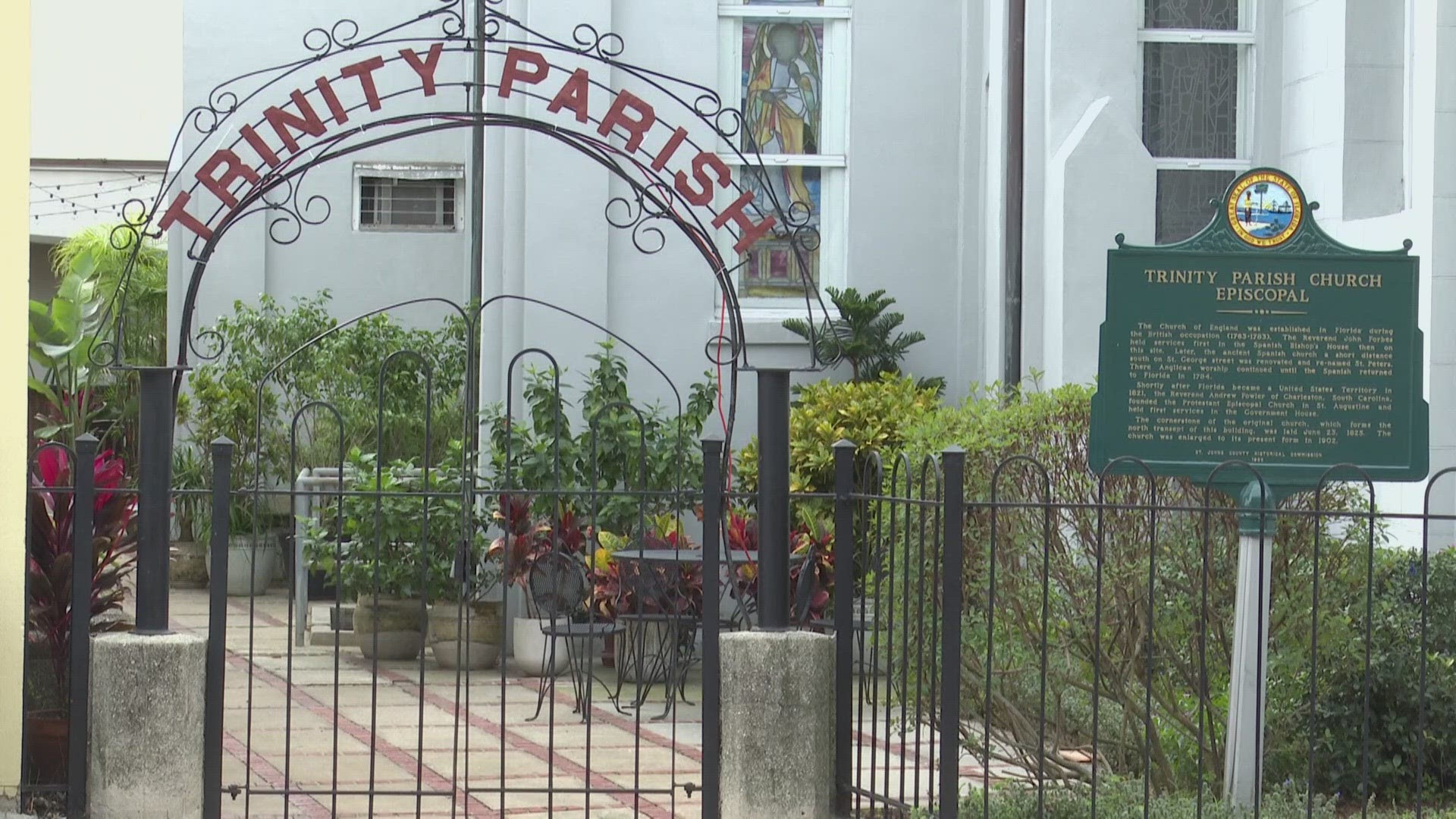ST. AUGUSTINE, Fla. — This weekend, millions of Americans will celebrate the inclusive work of Dr. Martin Luther King Jr.
Dr. King stayed in St. Augustine in the summer of 1964. That same summer was a time of monumental turmoil and change for America's oldest city. That change is memorialized to this day in one of its oldest churches.
"60 years ago was a period of time when a lot of St Augustine was in turmoil," said Goody Seymour, whose father Charles was the Rector of Trinity Parish in 1964. That was the same year the Civil Rights Act was passed.
Already in its second century as an Episcopal Church, Trinity Parish in St. Augustine was on the doorstep of protests and lunch counter sit-ins. There was a sit-in at Woolworth's drugstore next to the church.
"During the protest some of the Black protesters wanted to come into the church and some people in the church tried to keep them out and actually locked the doors," said Seymour, who added that his father was not in favor of that decision.
"He said no, that's not going to happen, we're opening the doors, the church is always open to everyone of every faith, denomination, religion or color," said Seymour.
It was then that Trinity Parish became the first integrated Episcopal Church in the area. A photo of Black parishioners walking out of the church after service was circulated in newspapers across the country.
"He wasn't an activist, he just did it because it was the right thing to do," said Seymour.
The all-white vestry at the church was not on board with Charles Seymour's view.
"The vestry of the church at the time brought a letter asking for his resignation because of that stance," said Seymour.
After 15 years of service to the church, 1964 was Charles Seymour's last year as Rector at Trinity Parish. But decades after forcing his resignation, the community of Trinity Parish realized the monumental actions made by Charles Seymour and dedicated a courtyard and garden in his honor. A garden his son oversees to this day.
"My wife and I come in and we help maintain this area," said Goody Seymour, "that's been our dedication to Trinity."
60 years after Trinity Parish was the epicenter of an incredibly divisive issue, its message, and the message of the son of the Rector who was cast away for welcoming all, is one of inclusion.
"He was practicing his Christianity and I think it's what means more to me than anything else," said Seymour, "the church is here, it always will be here and all it can do is grow, and it has grown."
Grown, like the flowers in Seymour Garden.

